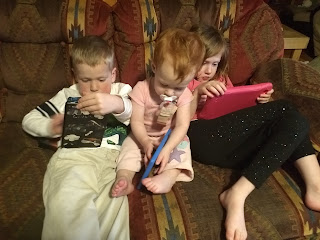Game Theory - Choice
Games innately appeal to most people. They engage, entertain, challenge, and reward players. They have many forms nowadays including cards, board games, table top role-play, and video games to name a few.
Now there are games that involve reaction times and timing, but more often than not what appeals to gamers is making decisions that either improve or hurt their position when played out alongside the decisions of other players.
This element of game theory presents in both competitive and cooperative formats. Usually the winning strategy is to reduce or eliminate options from your opponent causing them to act in a limited or predictable way or in the case of cooperative games, to increase the number of options to your allies empowering them with perhaps a more optimal strategy.
It turns out this strategy is a far more prevalent and deeper aspect of the human experience itself. In business, a move that puts you a position with greater options is usually the optimal one. In warfare, to position yourself so as force your opponent's hand is usually the optimal one.
Our very vocabulary demonstrates how critical this aspect is. Consider the phrase, "We have no choice." When sincere, that damning phrase conveys a sense of helplessness in the phrase alone. When in contrast, "The choice is clear" conveys success in finding the optimal decision.
Thus suffice it to conclude then that increasing capacity for choice empowers while the opposite weakens.
Mormons use the word 'agency' as a label for this capacity for choice reaching to the word's more ancient Latin origin of agentia (doing) where choice and action are one in the same. Choice is an action and in action we have implicitly made a choice.
Its appropriate that we mentioned choice being a strategy in warfare considering that by the same theology, a war was fought in the heavens over the very topic. The Lord and his hosts fought to preserve agency for the children of God. Satan and his hosts to eliminate it thereby guaranteeing no soul lost. Only one strategy causes us to be more like our Father and it is through exercising agency that we employ those first aspects of godhood.
How then it must sadden Him when we undermine our own capacity for choice or worse yet, throw decisions that He empowered us to make back at Him. "Dear God, should I marry this person?" "Dear God, how many children should we have?" "Dear God, what should I do?"
Now I'm not suggesting that we shouldn't seek his counsel. I believe that to be folly. But consider how different the inquiry is when, "Dear God, I make this decision. I make it for these reasons. If there be any reason I am in error, wilst thou make it known unto me. Otherwise, please bless my efforts."
Take this relationship we respectively have with our own Father and apply it to that relationship we have opportunity to develop with our own children, yet another way this life as a training ground emulates yet another aspect of godhood. Do we give our children adequate opportunity to exercise agency? Is their day filled with seemingly small choices such as what to wear, what to watch or read, what to eat, which choice to help with, what punishments are fair for all, how I can make amends.
I believe strongly in the concept of natural consequences, and since I figure I've lost those overly sensitive readers at the mere mention of the divine, my kids end up doing things that are apparently anachronisms in this age. My 2-year-old boy is given a cloth to clean up inevitable spills, has to pick up when he empties a container or drawer of something. When my 6-year-old daughter can't find anything clean in her drawer to wear, it is her opportunity to come up with some solution. Where I can, I don't bail them out, I don't solve their problems. I may help them come up with options both effective and sarcastic, but it is theirs to determine the difference.
To some this may seem cruel or insensitive. And yes times have changed. But all too often I see 'adults' unable to cope with failure, unable to handle the stress of deadlines or expectations, unable to work in an environment full of distractions of all kinds, unable to make permanent life decisions for themselves, or reject any responsibility for their station in life. It absolutely blows my mind at the access to everything they have grown up with their entire life and yet they can't govern themselves.
All it takes is one look at my daughter holding a smart phone, the entirely of the culmination of all human knowledge held within the palm of her hand. She has already been empowered by right of her birth. Have I properly prepared her?
And is this the worry of all parents, mortal and divine?



Comments